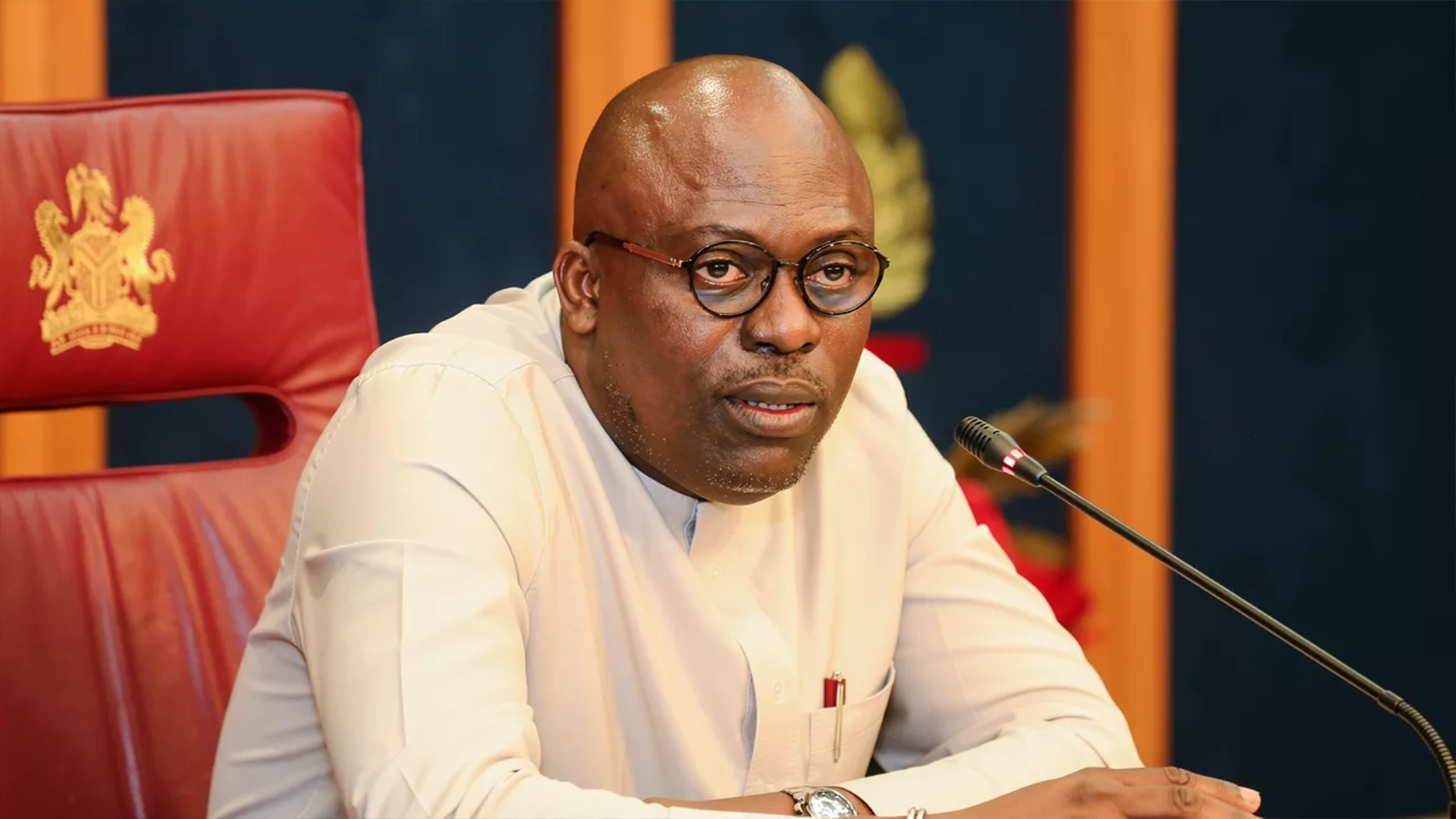
• Gross foreign reserves cross $40b first time in nearly three years
• CBN continues liquidity hunting, ‘courts’ IMTOs
• Monetary, fiscal rigidities pose fresh medium-term risks
With summer holidays and foreign school tuition payment pressure now at their tail ends, market analytics have suggested that the bleeding naira may have a breather ahead.
On the supply side, the homecoming of thousands of Nigerians in the diaspora for Christmas celebration also points to an improvement in liquidity in the coming weeks.
With their historical conjectures, the two factors will play dominant roles in shaping the foreign exchange (FX), especially the parallel market, for the rest of the year.
In the six-month running from October 2023 to March 2024, Nigerians spent $63 million in locally sourced FX on foreign tuitions, according to data sourced from the Central Bank of Nigeria (CBN). The value underpinned how much it costs the country to fund overseas education.
During President Muhammadu Buhari’s eight-year presidency when FX was largely subsidised, as much as $28 billion was reportedly disbursed to millions of Nigerians schooling in the United Kingdom, the United States, Canada and other countries.
Already, the parallel market, it was learnt at the weekend, is beginning to witness some cautious trading, with traders restraining wholesale purchases for fear of a significant tanking of the greenback.
But the prospect is blighted by medium- to long-term risks, with analysts charting how the just-concluded United States elections and rising uncertainty could affect naira’s outlook.
The second coming of President Donald Trump, who had promised a sweeping immigration policy, is considered a major downside risk to global diaspora remittances, a key pillar of the CBN’s FX supply strategy. The U.S. controls a large part of yearly global remittances, with as much as 10 per cent flowing from the country in some years.
For instance, in 2022, U.S. migrants sent $79.2 billion (or 9.5 per cent of the total cross-border remittances) to their home countries. The flow is being threatened, and Nigeria, a top beneficiary of the windfall, will be hit hard if Trump makes his promise and tightens visa rules for new migrants as he did in his previous administration or embarks on “mass deportation”.
In the meantime, the dollar has remained upbeat. However, falling interest rate cuts by central banks of advanced economies offer an opportunity for emerging markets. But how Nigeria deals with the myriads of monetary and fiscal rigidities, most likely, would determine how much of the ‘dislodged’ global capital it can attract to stabilise its FX market and improve the fate of naira.
Chief of the fiscal setback, according to Jimoh Ibrahim, a Nigerian entrepreneur and politician, who spoke with The Guardian on the sidelines of the recent World Bank/International Monetary Fund (IMF) yearly meetings, is corruption, followed by an energy crisis.
“Nobody will bring money to the country except we address the issue of corruption,” he stressed.
There are rigidities in the monetary system as well. For instance, the widening premium on the parallel market rate is sending an untoward signal to the international market at the umpteenth time.
The market arbitrage, in the past three months, has nestled between five and 10 per cent, as against the globally recommended five per cent margin. By IMF standards, at above five per cent, FX market arbitrage is considered a dictionary and unhealthy for capital flow.
The government, in recent times, has bandied the rising foreign exchange reserves as a positive sign the economy is on course to stability. For the first time since February 2022, the gross foreign reserves crossed the $40 billion mark last week.
But with the current foreign liability exposure of the CBN largely unknown, there are concerns about the net reserve position, even in the international market with the Central Bank urged to be more transparent in this regard.
During a meeting of the CBN and the Ministry of Finance with the foreign investors at the World Bank/IMF Annual Meetings, the apex bank governor, Yemi Cardoso, merely said the regulator was working towards making public the net reserves positions from the first quarter (Q1) of next year.
It took the prying eyes of the Special Investigator, Jim Obazee, and his team before the CBN published its audited financials last year, showing the country’s reserves had been wiped by undisclosed liabilities to sundry international organisations.
With the government yet to convince the market that it has fully embraced transparent transactions, there are fears that the country may have overstated its reserve – a reason some fund holders are still holding back from coming into the market.
Like rising FX reserves, some experts have also questioned why the diaspora bond, which recorded 130 per cent subscription, has not moved a needle in the FX market. The performance of the maiden series of the bond, supposedly, demonstrated the rising confidence in the economy. Sadly, naira has continued to falter.
Ahead of the end of the summer holidays, the domestic currency tanked consistently, plunging to about N1,750/$ at the parallel market in October.
But the good news is that market insights suggest the downtrend, which many said was heading to its all-time low (N1,900/$), may have reached an inflexion point and could pick some gains.
Since the beginning of November, the parallel market has been fairly stable at a volatility index of 7.43 per cent, from the average performance of 11.7 per cent from August till yesterday.
The index spiked from 7.3 per cent to 16.2 per cent in September only to drop to 11.6 per cent in October, when naira closed at N1715/$. The recent slowing in volatility, coinciding with the end summer holidays, suggests a decent moderation in demand for dollars.
This week, the local currency appears to have continued a consolidation path trading around N1,700/$ on Monday. With the Nigerian Autonomous Foreign Exchange Market (NAFEM) closing at N1681.4/$ on the first trading day, the market spread has also significantly narrowed.
The CBN may be looking at building on this prospect. Cardoso had disclosed that the bank was working with international money transfer organisations (IMTOs) to address the challenges that affect diaspora remittances, which had grown from about $250 million to $600 million between April and October this year.
Ultimately, the CBN is eying a $1 billion monthly remittance, Cardoso told media, while highlighting efforts to grow the formal remittance channels.
The monetary authority has continued other policy options that could unlock liquidity and stabilise the market. Last week, it gave commercial, merchant and non-interest banks (CMNIBs) approval to trade with dormant foreign currency deposits in domiciliary accounts in their portfolios.
The authorisation rode on the implementation of the Foreign Currency Disclosure, Deposit, Repatriation and Investment Scheme issued earlier.
The CBN, in the new policy that took effect on November 6, said banks are required to provide monthly returns from the scheme no later than the 14th of the next month.
“CMNIBs may trade with any deposited ITFC not immediately invested by a participant, provided that the funds would be made available to the participant when needed. Interest on uninvested funds interest payment by CMNIBs on the balance in the designated domiciliary account shall be in line with relevant provisions of the guide to charges by Banks and Other Financial Institutions in Nigeria,” the bank said.
But some experts said the apex bank has erred in the assumption that the authorisation would increase the liquidity as the scheme merely reiterates what every bank had been doing.
Hitherto, banks in their financial intermediation use all proceeds of domiciliary accounts just like naira accounts in meeting their daily obligations and only source for the funds where there are requests from the depositors.
Hence, Prof. Godwin Owoh, an expert in monetary policy, said the policy does not make any material difference in FX balances or liquidity position.






